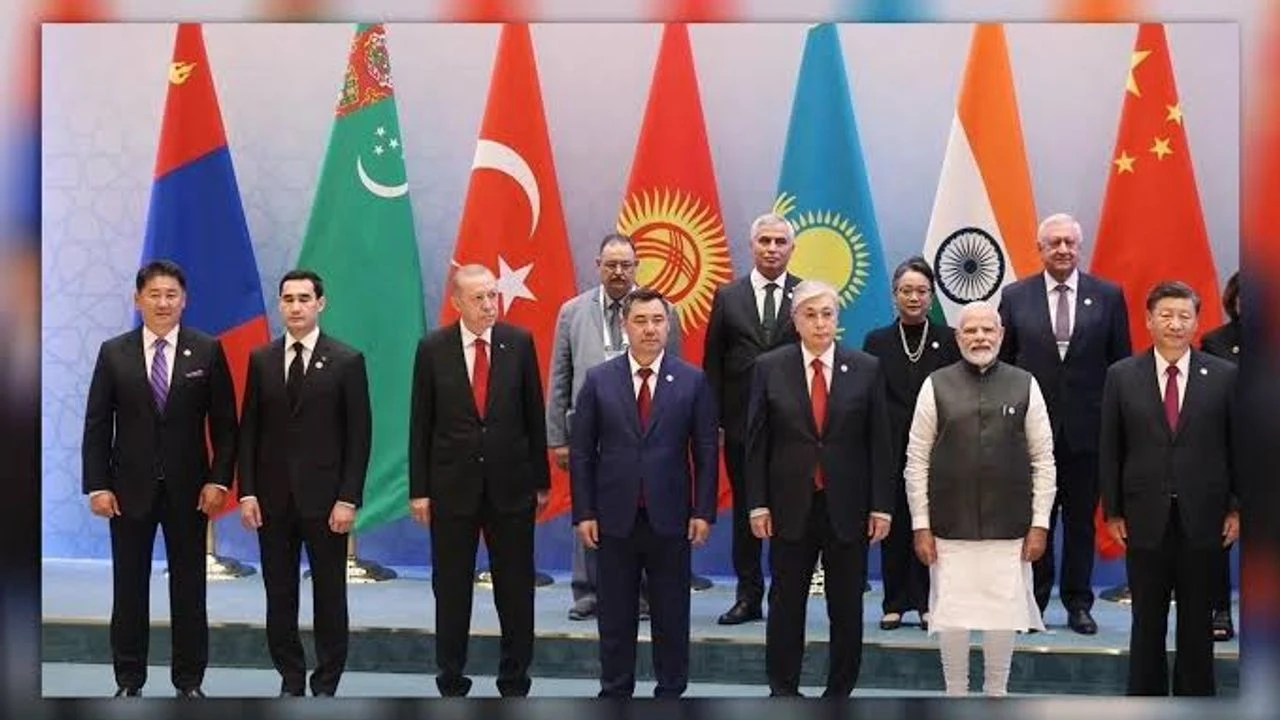Some reasons why Ankara must turn to the East.
Some reasons why Ankara must turn to the East.
China hosted the “25th Heads of State Council Meeting” of the Shanghai Cooperation Organization in Tianjin from August 31 to September 1.
During the meeting, 24 documents were approved, including the Tianjin Declaration and the Shanghai Cooperation Organization Development Strategy until 2035.
The close interactions and photo ops between the leaders of India, China, and Russia caught the eye.
President Recep Tayyip Erdoğan was also among the participants and held a series of bilateral meetings.
UWI author, historian and political scientist Assoc. Prof. Mehmet Perinçek assessed the meeting and Türkiye’s position for UWI.
—————————————————————————————————————————————
What the meeting showed
This meeting was a clear demonstration that Eurasian states are determined to protect their sovereignty, not only at the national level but also through international alignments.
The meeting also showed that the Atlantic’s pressure isn’t going unanswered. An example was the rapprochement between India and China. The US has intensified pressure on India, including tariff moves. The photo of Modi and Xi Jinping was a response to that. The same goes for the photo of Modi and Putin. The summit was a significant convergence of states and civilizations across Eurasia.
The SCO also provides a platform to contain and resolve disputes within Eurasia. The fact that countries like India and Pakistan, or India and China, can stand together under the umbrella of the SCO shows that conflicts among Eurasian states can be de-escalated, even transformed into forms of cooperation that align with mutual interests.
NATO against NATO member Türkiye
Although Türkiye is formally a NATO member, in practice it has become a target of it. Look at our southern border: in Syria, the terrorist organization there refuses to lay down its arms, Israel’s occupation in Syria continues, the US has not abandoned the “puppet Kurdistan” project. In the Eastern Mediterranean and Cyprus, we face an anti-Türkiye alignment essentially made up of NATO countries which is led by the US and includes Israel, Greece and the Greek Administration of Southern Cyprus, and at times France. These are all NATO or Western members or partners.
US’s bases encircle Türkiye from the Aegean to Thrace. The Recent NATO exercise in Thrace, right across the Turkish border, means nothing less than a show of force directed at Türkiye.
Besides these military or political aspects, the US also uses dollar and sanctions as economic weapons. The sanctions on Russia harm not only Russia, but also countries that cooperate with Russia, like Türkiye. Also, Türkiye has faced sanctions at various times.
From Syria to the Black Sea
In sum, from Syria and Cyprus to the Eastern Mediterranean, from the Aegean and Thrace to the Black Sea and the South Caucasus, NATO countries stand on the opposite side of Türkiye. To withstand and counterbalance this threat, Türkiye needs allies alongside its own national capabilities. Those allies are in the SCO. They have come together precisely in response to similar threats Türkiye faces. For that reason, it is very clear that Türkiye’s objective interests and natural camp are not with NATO but with the SCO. This choice is crucial for our vital interests.
Neutralizing the threats is only the first step. Beyond that, for Türkiye, SCO is the only option for economic development and sovereignty. Of course, there are other organizations of the multipolar world like BRICS and the Organization of Turkic States among them. But the SCO stands out now.
SCO’s pull extending towards Europe
The SCO’s pull is not limited to Asia. Some European countries are increasingly engaging with the SCO. This rising wave in Eurasia is reaching Europe’s shores and pulling countries like Slovakia and Serbia into Beijing. This reflects that the European Union and the Atlantic system are no longer meeting even some European states’ needs; worse, they are harming those countries’ vital interests. Consequently, these states are seeking room to breathe in Eurasia. Türkiye should take radical decisions, carefully reading where the world is heading.
For Syria’s territorial integrity
Türkiye–Russia relations cover many regions and areas. Starting with the vital issues and military threats mentioned above, there are numerous steps the two countries can take together in Syria, the Eastern Mediterranean and on the Cyprus question.
For Syria’s territorial integrity, there is no alternative to restoring a joint track, like the Astana process, that brings Türkiye, Russia and Iran together with the Damascus government. The US and Israel, despite their differences on some points, converge strategically. That strategy is to undermine the territorial integrity of both Syria and Türkiye and regional security.
A Syrian delegation recently visited Moscow. Reports indicated that Syrian officials invited Russian military police to conduct patrols along the southern frontier with Israel. Russia continues printing Syrian banknotes under existing agreements, and an extension has been discussed. These trends are taking shape within the Damascus administration. If Ankara is sincere and determined about Syria’s territorial integrity, and if it has the will to act, there is no option other than cooperation with Syria, Russia and Iran.
This comprehensive cooperation approach must also include the Eastern Mediterranean and Cyprus, since the Israeli threat is not limited to Syria. Israel is building up forces in Cyprus, intervention scenarios targeting the Turkish Republic of Northern Cyprus (TRNC) are openly discussed in Israeli media.
Also, from tourism and nuclear energy to natural gas, energy security and trade, there are ongoing, and potentially much larger, projects between Russia and Türkiye that would contribute to national security development.

















Leave a Reply